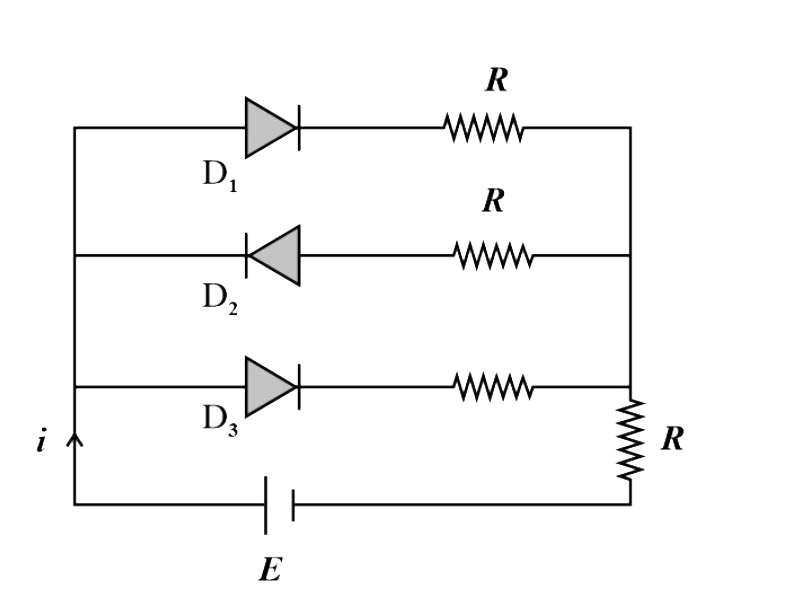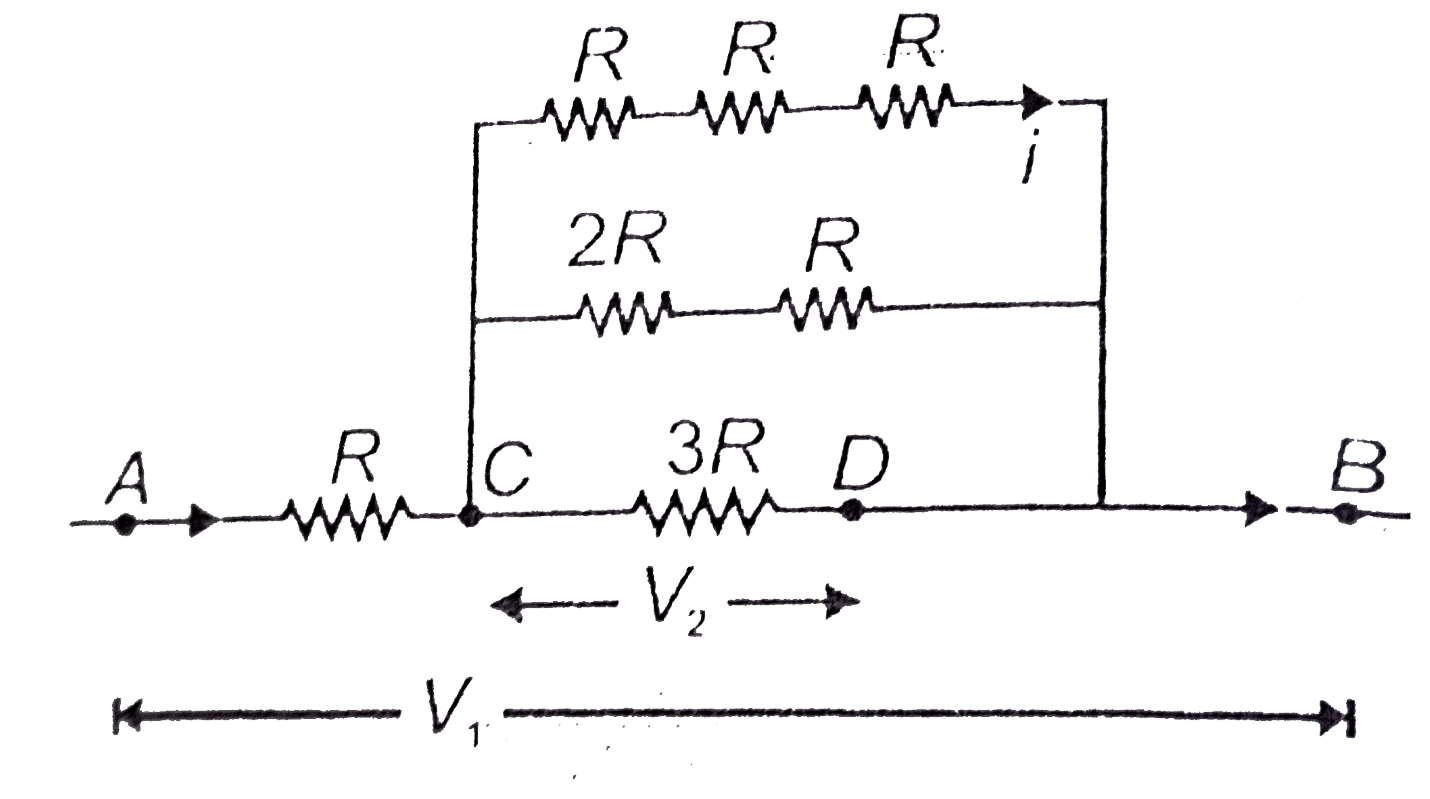In the following circuits PN-junction diodes D1,D2 and D3 are ideal for the following potential of A and B, the correct increasing order to resistance between A and B will be
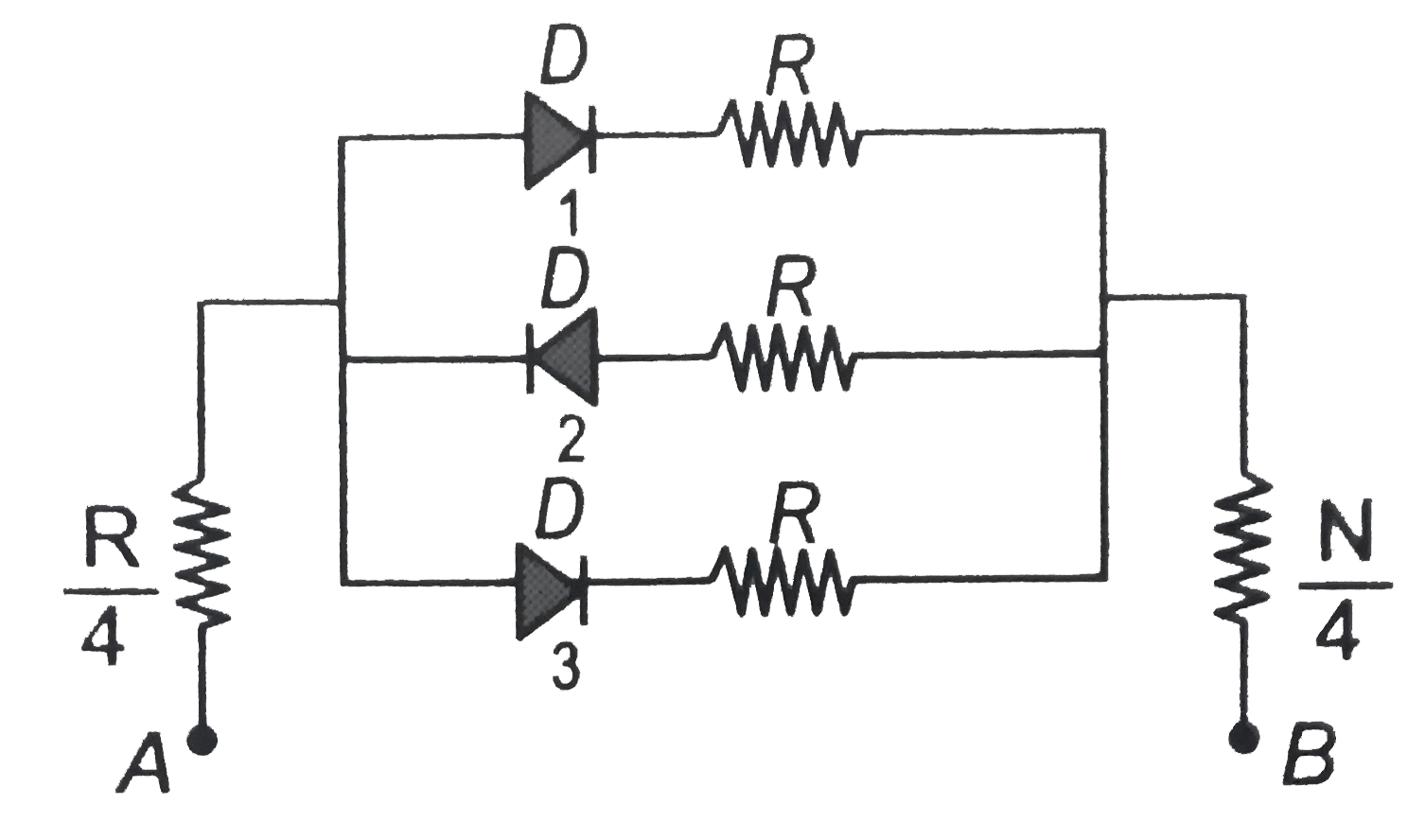
(i)−10V,−5V(ii)−5V,−10V
(iii)−4V,−12V
(i)<(ii)<(iii)
(iii)<(ii)<(i)
(ii)=(iii)<(i)
(i)=(iii)<(ii)
The correct Answer is:C
Step by step video, text & image solution for In the following circuits PN-junction diodes D_(1), D_(2) and D_(3) are ideal for the following potential of A and B, the correct increasing order to resistance between A and B will be (i) -10V, -5V (ii) -5V,-10V (iii) -4V, -12V by Physics experts to help you in doubts & scoring excellent marks in Class 12 exams.
Updated on:21/07/2023Topper's Solved these Questions
- ELECTRONICSBOOK - ERRORLESS CHAPTER - ELECTRONICSEXERCISE - Digital Electronics
2 Videos
- ELECTRONICSBOOK - ERRORLESS CHAPTER - ELECTRONICSEXERCISE - Valve Electronics (Diode and Triode)
3 Videos
- ELECTRON, PHOTON, PHOTOELECTRIC EFFECT AND X-RAYSBOOK - ERRORLESS CHAPTER - ELECTRON, PHOTON, PHOTOELECTRIC EFFECT AND X-RAYSEXERCISE - Self Evaluation Test
3 Videos
- ELECTROSTATICS BOOK - ERRORLESS CHAPTER - ELECTROSTATICS EXERCISE - Ordinary Thinking Objective Questions (Electric Flux and Gauss.s Law)
28 Videos
Similar Questions
Knowledge Check
In the following circuit of PN junction diodes D1,D2 and D3 are ideal then i is
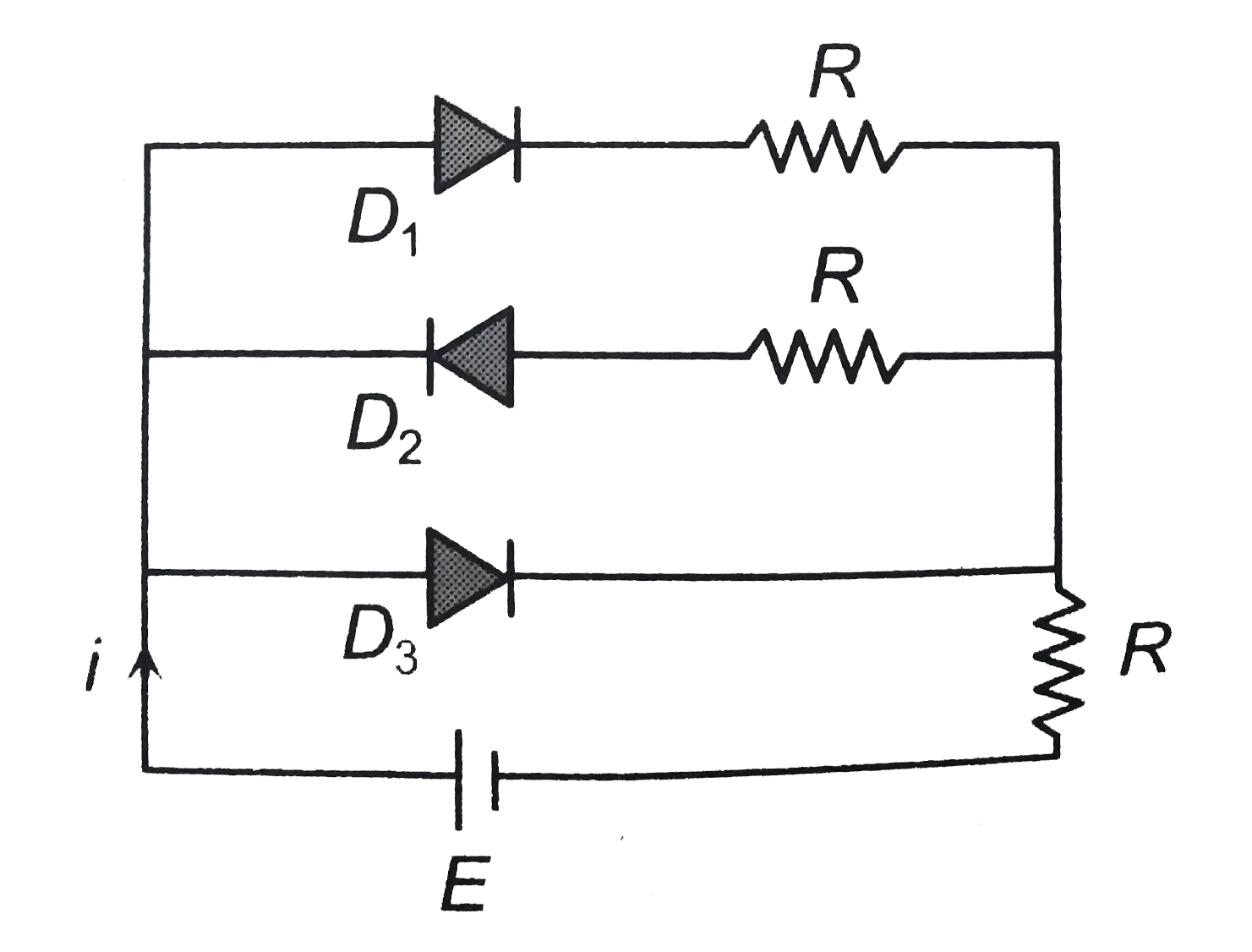 AE/RBE/2RC2E/3RDZero
AE/RBE/2RC2E/3RDZeroVA and VB denote potential of A and B, then the equivalent resistance between A and B in the adjoining circuit is (ideal diode).
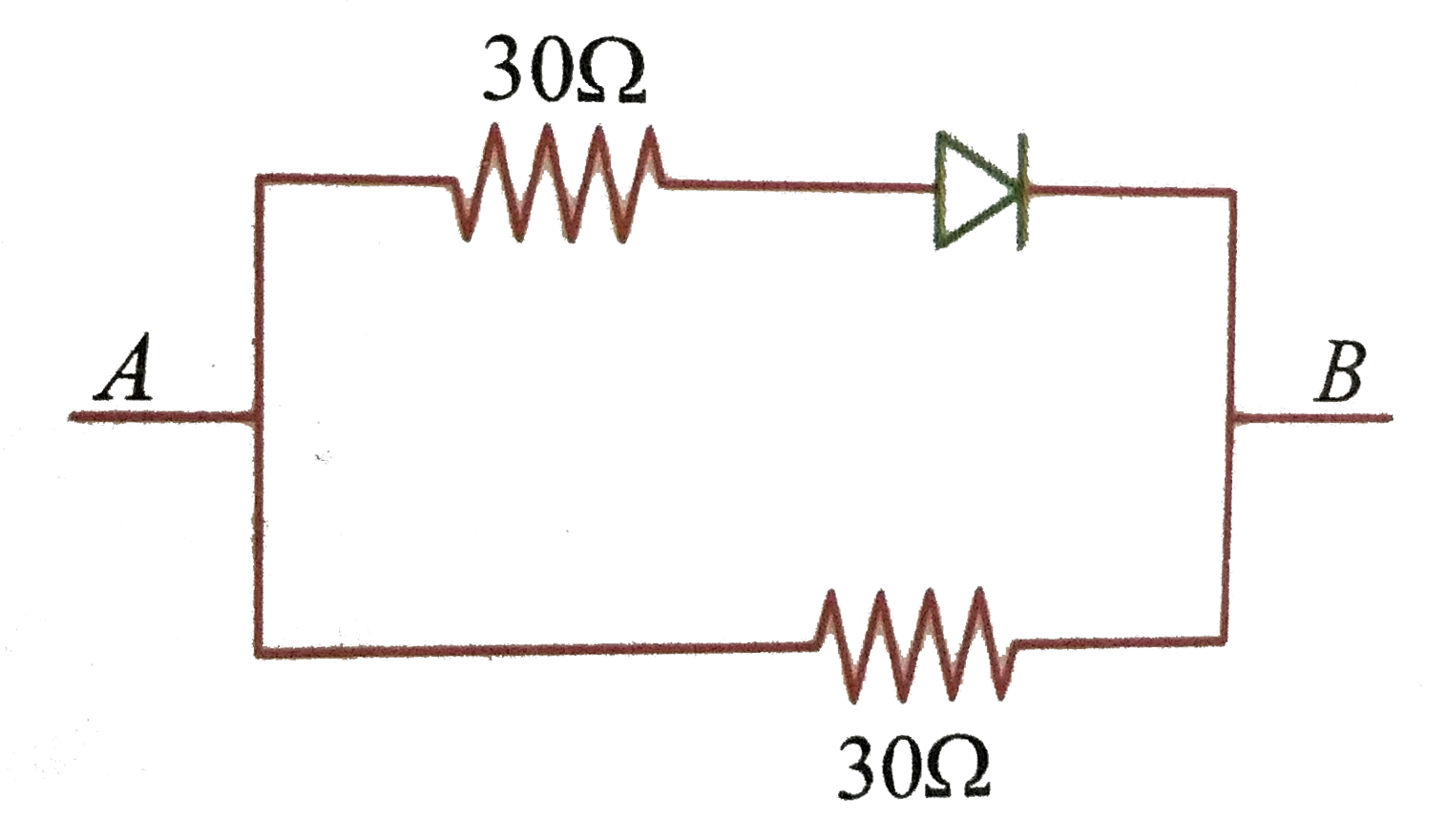 .A15ΩifVA>VBB30ΩifVA<VBCboth 1 and 2Dneither 1 nor 2
.A15ΩifVA>VBB30ΩifVA<VBCboth 1 and 2Dneither 1 nor 2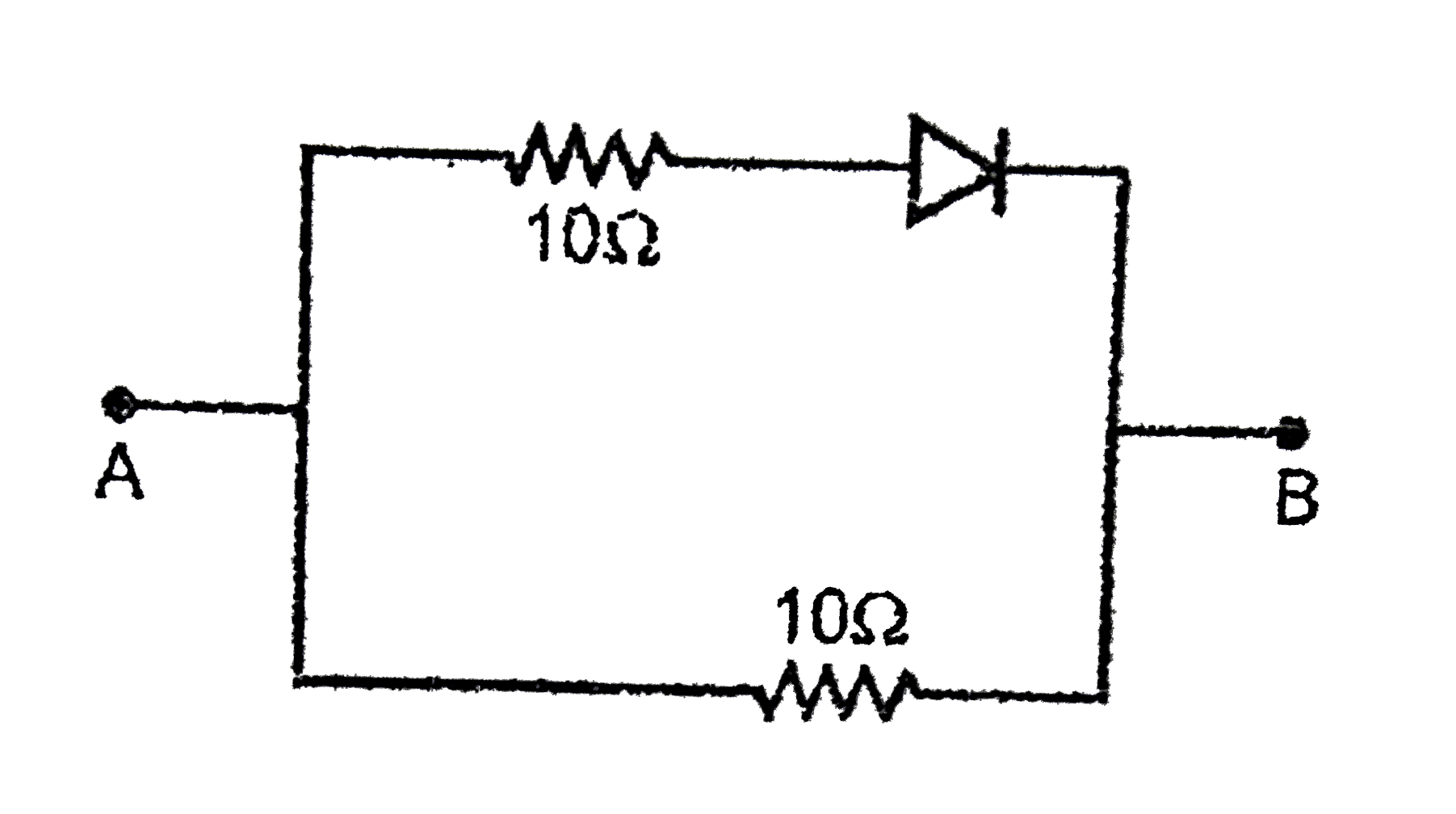
If VA and VB denote the potentials of A and B, then the equivalent resistance between A and B in the adjoint electric circuit isA10 ohm if VA>VBB5 ohm if VA<VBC5 ohm if VA>VBD20 ohm if VA>VB
VAandVB denot potentils of A and B then the equivalent resistance of A and B, then the equivalent resistance between A and B in the adjoining circuit is (ideal diode)

View SolutionPotential difference between points A and B (i.e. VA−VB) is -----
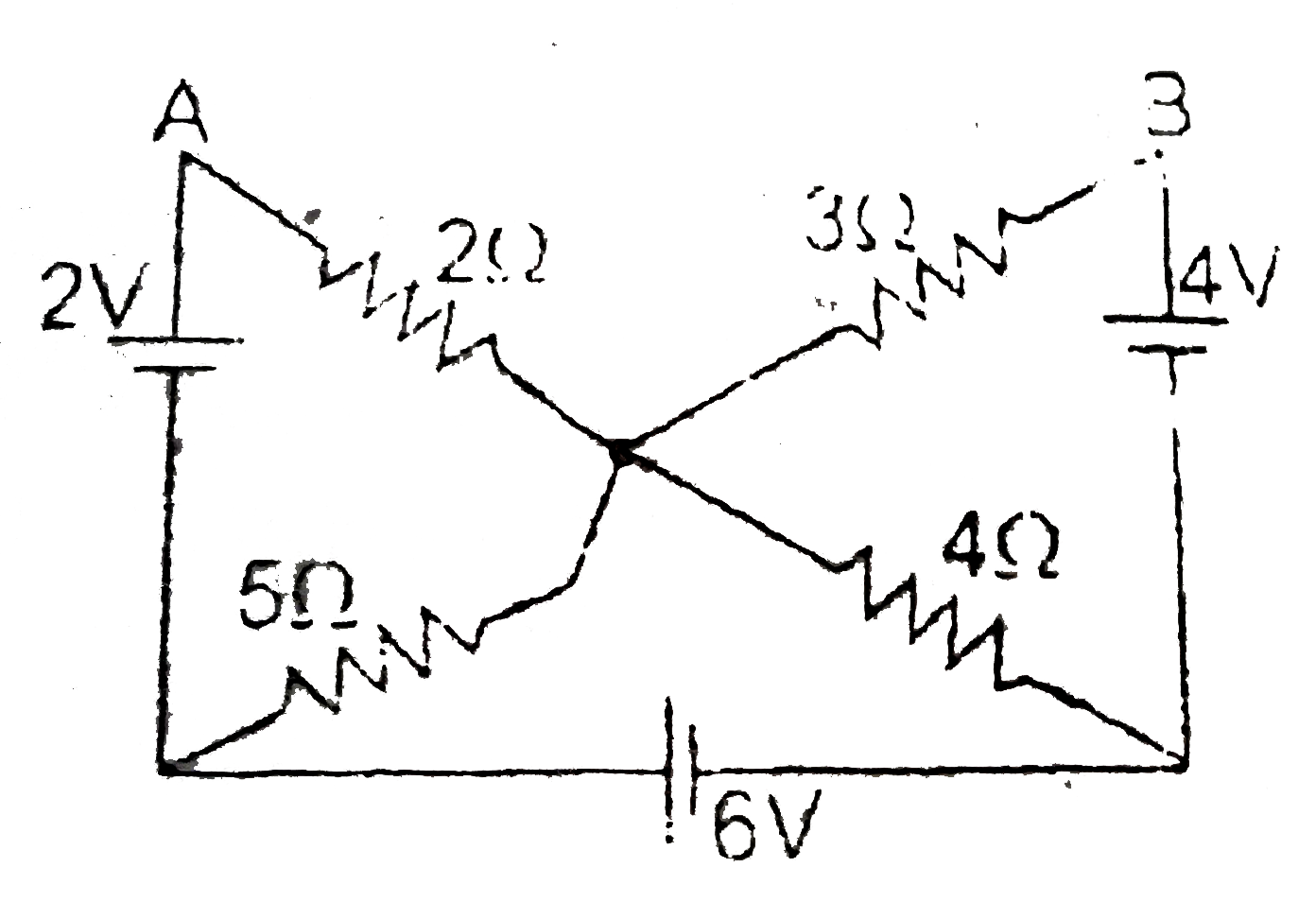
View SolutionTwo condensers C1 and C2 in a circuit are jhioned as shown in . The potential fo point A is V1 and that of B is V2 . The potential of point D will be

View SolutionIn the circuit shown ε1 and ε2 are two ideal sources of unknown emf. Some currents are shown in some branches of the circuit. Potential difference appearing across resistance 6Ω is VA−VB=10V. Then
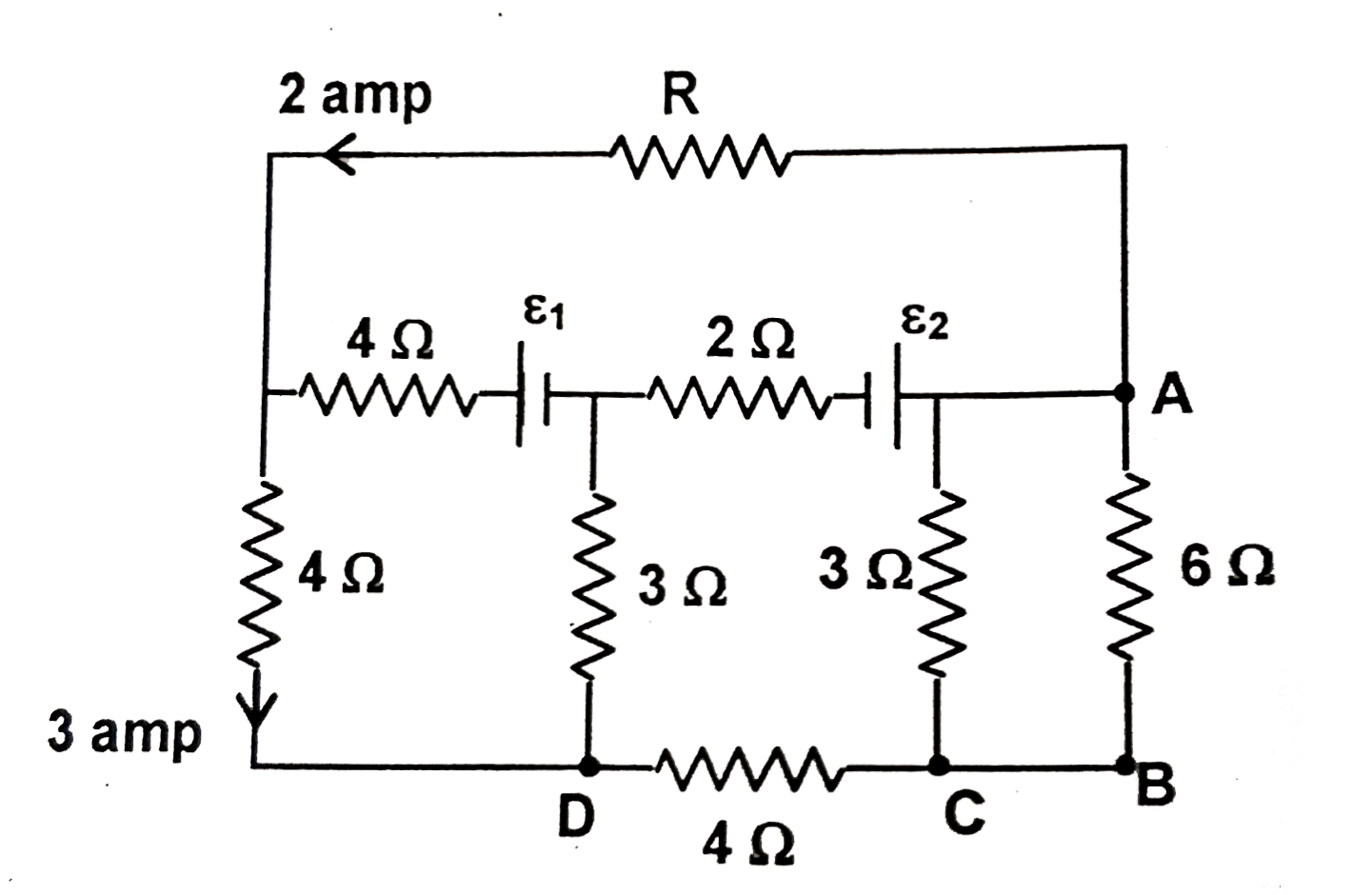
View SolutionIn the circuit shown in figure, E1andE2 are two ideal sources of unknown emfs. Some currents are shown. Potential difference appearing across 6Ω resistance is VA−VB=10V.
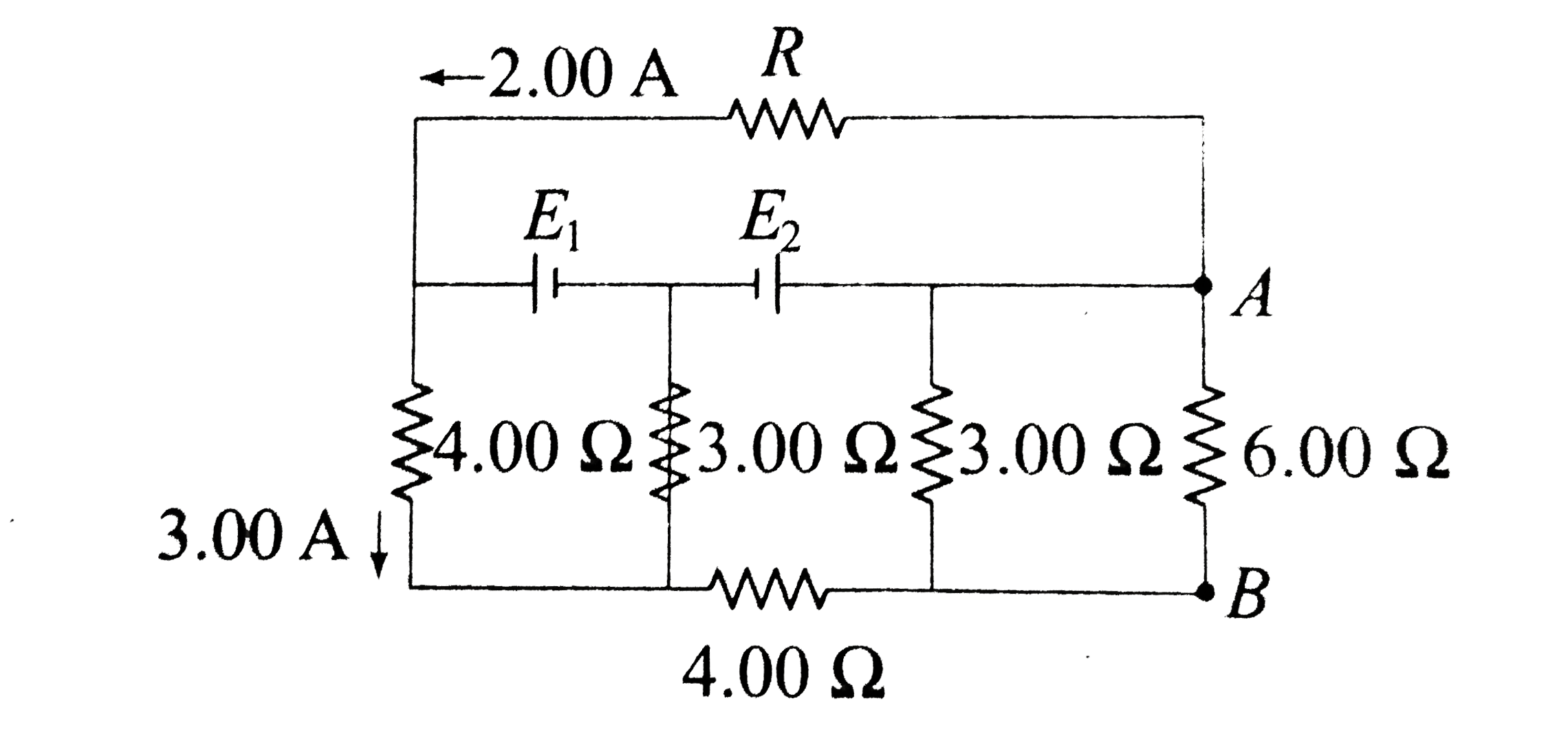
View Solution

